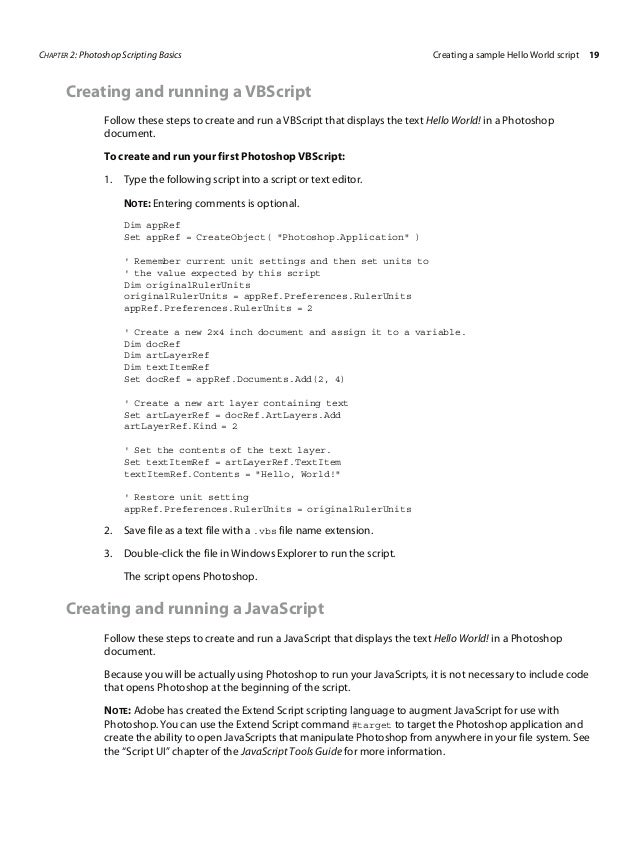Vbs Count Files With Extension
Posted : admin On 21.12.2019For Excel, you need to use a loop. The loop really won't take that long, but, if for some reason your detest loops and you must have a one liner, then batch is the way to go.I didn't test it but create a text file in the directory, call it whatever.bat, right click the file and select edit (or edit with notepad). Then insert the following code: set /a counter = 0for /f%%f in (.pdf) do set /a count += 1echo counter:%counter%pauseSave the file, and then double-click to open and run the program.

Hi, i put this code into vba in access,The function works but it counts also the hidden files which i don`t want.how can i edit the code to let me count the files in folder and subfolder witout counting the hidden/system files?Function CountFilesFolderAndSubFolders(strFolderAs String, Optional strExt As String = '.' ) As Double 'Author: Ken Puls (www.excelguru.ca) 'Function purpose: To count files ina folder and all subfolders. If a file extension is provided, ' then count only files of thattype, otherwise return a count of all files. Give this a try, I think it should do what you want, and is a little simpler.Function CountFilesFolderAndSubFolders(strFolderAs String, Optional strExt As String = '.' ) As Double 'Author: Ken Puls (www.excelguru.ca) 'Function purpose: To count files ina folder and all subfolders. If a file extension is provided, ' then count only files of thattype, otherwise return a count of all files. 'Stop Dim objFso As Object Dim objFolder As Object Dim objFile As Object Dim objSubFolder As Object 'Set Error Handling On Error GoTo EarlyExit 'Create objects to geta count of files in the directory Set objFso = CreateObject('Scripting.FileSystemObject') Set objFolder = objFso.GetFolder(strFolder) 'Count all matching files (excluding hidden or system files) for Each objFile In objFolder.Files If Not objFile.Attributes And 6 Then If strExt = '.'
Vbscript Get File Extension From String
Or (UCase(Right(objFile.Path, (Len(objFile.Path) - InStrRev(objFile.Path, '.' )))) = UCase(strExt)) Then CountFilesFolderAndSubFolders = CountFilesFolderAndSubFolders + 1 End If End If Next objFile 'Request count of filesin subfolders For Each objSubFolder In objFolder.SubFolders CountFilesFolderAndSubFolders = CountFilesFolderAndSubFolders + CountFilesFolderAndSubFolders(objSubFolder.Path,strExt) Next objSubFolder EarlyExit: 'Clean up 'On Error Resume Next Err.Description Set objFile = Nothing Set objSubFolder = Nothing Set objFolder = Nothing Set objFso = Nothing On Error GoTo 0 End FunctionSelect allbp. Correcting a couple of errors in that code, that existed before I added to it, and one error in my attribute checking:Function CountFilesFolderAndSubFolders(strFolder As String, Optional strExt As String = '.' ) As Double 'Author: Ken Puls (www.excelguru.ca) 'Function purpose: To count files ina folder and all subfolders. If a file extension is provided, ' then count only files of thattype, otherwise return a count of all files. 'Stop Dim objFso As Object Dim objFolder As Object Dim objFile As Object Dim objSubFolder As Object 'Set Error Handling On Error GoTo EarlyExit 'Create objects to geta count of files in the directory Set objFso = CreateObject('Scripting.FileSystemObject') Set objFolder = objFso.GetFolder(strFolder) 'Count all matching files (excluding hidden or system files) For Each objFile In objFolder.Files If (objFile.Attributes And 6) = 0 Then If strExt = '.' Or (UCase(Right(objFile.Path, (Len(objFile.Path) - InStrRev(objFile.Path, '.'
)))) = UCase(strExt)) Then CountFilesFolderAndSubFolders = CountFilesFolderAndSubFolders + 1 End If End If Next objFile 'Request count of filesin subfolders For Each objSubFolder In objFolder.SubFolders CountFilesFolderAndSubFolders = CountFilesFolderAndSubFolders + CountFilesFolderAndSubFolders(objSubFolder.Path, strExt) Next objSubFolder Exit Function EarlyExit: 'Clean up 'On Error Resume Next MsgBox Err.Description Set objFile = Nothing Set objSubFolder = Nothing Set objFolder = Nothing Set objFso = Nothing On Error GoTo 0 End FunctionSelect allbp.